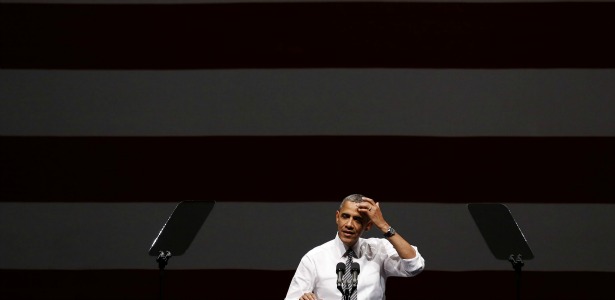Why We Shouldn't Be Surprised Obama Is Falling Behind
Until Mitt Romney's strong showing in the first debate, his stumbles served to obscure a series of missteps by the president.

Before the first presidential debate, President Obama was riding high in the polls. Now, he finds himself tied or even behind Mitt Romney, both nationally and in key states. But what happened may not be as simple as a good debate for Romney and a bad one for Obama. The president was showing signs of weakness before the two candidates met up in Denver -- everyone was just too distracted by a run of terrible news for Romney to take notice.
Obama had two prominent public outings prior to the Oct. 3 debate in Denver, and both should have been alarming to his supporters: A 60 Minutes interview and a forum hosted by the Spanish-language network Univision. In both extended interviews, the president was off his game in the same ways the debate would soon showcase -- unsteady, equivocating, lacking in forcefulness or punch -- and made a number of minor gaffes. But Mitt Romney was in the midst of a rather spectacular ongoing implosion at the time, so Obama's blunders largely went unnoticed.
At the Univision forum, host Jorge Ramos pressed Obama hard on his failure to enact immigration reform, and Obama had no good answer. "You did not keep your promise," Ramos charged. Obama responded with a rambling answer about how busy he'd been with the economic crisis and how little cooperation he got from Republicans. Ramos didn't let him off the hook: "A promise is a promise," he said. Obama's answer was an airless civics lesson:
There's the thinking that the president is somebody who is all powerful and can get everything done. In our branch of -- in our system of government, I am the head of the executive branch. I'm not the head of the legislature; I'm not the head of the judiciary. We have to have cooperation from all these sources in order to get something done. And so I am happy to take responsibility for the fact that we didn't get it done, but I did not make a promise that I would get everything done, 100 percent, when I was elected as president.
Elsewhere in the Sept. 20 interview, Obama made the startling statement that "you can't change Washington from the inside, you can only change it from the outside." He blamed the deadly storming of the Benghazi consulate on reaction to an incendiary American-made video even though other members of his administration had already begun describing it as a preplanned terrorist attack. He went rather easy on Romney for his recently revealed "47 percent" comments. And the president was greeted by a markedly less enthusiastic response from the audience than Romney had gotten the night before; Romney's campaign had packed the room with supporters while Obama's team didn't bother.
The 60 Minutes interview, which aired on Sept. 23, was a similar story. Obama raised the hackles of some foreign-policy observers by calling the recent outbreak of Mideast violence "bumps in the road." Confronted with Prime Minister Benjamin Netanyahu's criticism of his Israel policy, Obama said he wasn't concerned: "I am going to block out any noise that's out there." He again copped to being disappointed "that we haven't changed the tone in Washington as much as I would have liked," and confessed that his efforts to fix housing had been "modest." Asked about the misleading claims in some of his campaign ads, he nonchalantly admitted his campaign had sometimes "gone overboard."
All of these comments were minor slips at worst, but they showcased a president who was less than quick-on-his-feet in the less demanding format of a national television interview. His demeanor in both appearances prefigured the verbose, disengaged performance he would turn in at the debate. Obama's poor pre-debate streak wasn't just these two interviews -- he had also been overshadowed at his nominating convention by the blockbuster speeches of the first lady and former president Clinton, while giving an unspectacular speech himself. And the two media appearances came when serious questions about the Sept. 11 embassy attacks were only beginning to gain steam.
Republicans tried to highlight these Obama flubs, but there was a much more entertaining spectacle distracting voters and the press: the Romney meltdown. From Clint Eastwood's convention speech to Romney's widely panned response to the embassy attacks to the bombshell release of the 47 percent tape, every passing day seemed to bring more signs that Romney was doomed. Having gotten no discernible bounce from his running mate selection or his convention, Romney was slipping in the polls to the point where Republican operatives started to muse privately about leaving him for dead and focusing their money on bolstering the party's hopes in the House and Senate. Pundits began making the comparison to Bob Dole in 1996.
This was the situation going into the first debate: an Obama who was clearly not in fighting shape, and whose surge in the horse-race had much more to do with his rival's weakness than his own strength. Had Romney not been messing up constantly, Obama's missteps might well have been the dominant media narrative -- and we would all have been a lot less surprised when a decidedly unfeisty Obama took the debate stage.